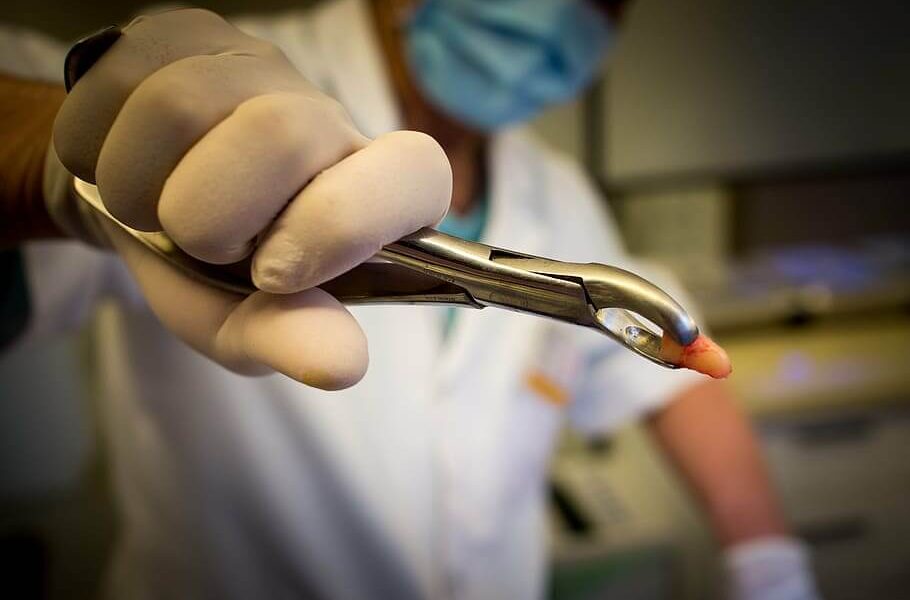The Best Denture Repair Kit: A Comprehensive Guide
Introduction
If you wear dentures, you know how essential they are for speaking, eating, and maintaining confidence. However, dentures can be fragile and prone to cracks, chips, or becoming loose over time. The last thing you want is to be caught in an uncomfortable or embarrassing situation with a damaged denture and no way to fix it quickly.
Having a denture repair kit at home can be a lifesaver. A denture repair kit is a compact set of tools and materials specifically designed to allow you to perform minor repairs and adjustments on your dentures without needing to visit the dentist immediately.
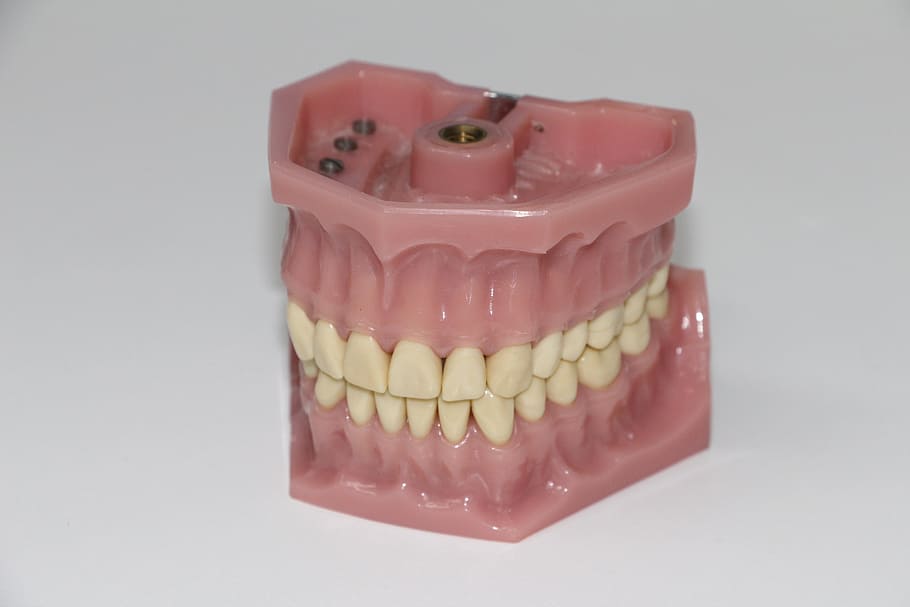
Imagine quickly sealing a crack, reattaching a tooth, or relining your denture for a better fit – all from the comfort of your home. With the fitting denture repair kit and some basic knowledge, you can save yourself the hassle and potential embarrassment of dealing with a damaged or ill-fitting denture until you can get a professional repair.
In this comprehensive guide, we’ll dive deep into the world of denture repair kits. We’ll cover what they are, the different types of denture problems they can fix, how to choose the fitting kit for your needs, and step-by-step instructions for using one successfully.
Whether you’re a long-time denture wearer or just starting, a denture repair kit can provide peace of mind and the ability to take care of minor issues as they arise. Let’s get started!
What is a Denture Repair Kit?
A denture repair kit is a mini dental lab packed into a compact case or container. It contains all the tools and materials you need to fix minor issues with your dentures at home temporarily. Think of it as a first-aid kit but for your false teeth!
At its core, a quality denture repair kit will include:
Denture Repair Components
Adhesives/Bonding Materials
- Specially formulated resins or acrylic liquids to rebond cracks, chips, or broken denture teeth
- Typically powder and liquid that you mix just before application
Reline Materials
- Soft reline pastes or strips to reline the gums/fitting surface for a better fit
- Hard reline kits with a powder/liquid combo to permanently reline
Tools & Accessories
- Small sanding tools or emery boards for finishing repairs
- Mixing pads for prepping bonding materials
- Applicator tools (brushes, picks) for precision application
- Curing materials (specialized light, saltwater solution) to set the repair
While the specific components can vary between kits, they all contain the essential ingredients:
1. Reattach broken denture teeth or sections
2. Fill in cracks or holes in the denture base
3. Reline the gums/fitting surface for a tighter fit
4. Smooth and polish the repaired areas
These repair capabilities in a portable kit allow you to quickly address issues like cracks, chips, looseness or lost teeth without an emergency dental visit.
Popular Denture Repair Kit Brands:
- Dentsply Denture Repair
- Secure Dental Repair Kit
- Dentemp Premium Denture Repair
- Perma Mesh Repair-Aid
- Dental Denture Reline & Repair
The best kits contain professional-quality materials and have a long shelf-life, so you’re prepared whenever the need for a quick fix arises.
With a good denture repair kit, you can get back to speaking and eating confidently in no time. Of course, your dental professional should still address any significant cracks, ill-fitting dentures, or issues.
Common Denture Problems That Can Be Fixed With a Repair Kit
Even with excellent care, dentures can develop issues that impact fit, function, and appearance over time. Many common denture problems can be temporarily resolved with a good repair kit, from hairline cracks to loose teeth to staining. Let’s look at some of the top issues you can fix yourself:
Cracks or Fractures
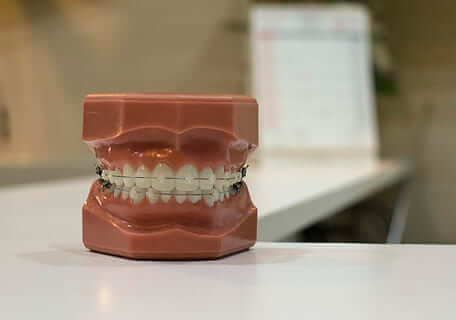
Denture bases made from acrylic resin can become brittle and develop cracks or fractures significantly if dropped. Cracks near the edges are common and can worsen over time.
Reasons for Cracks:
- Impact from dropping
- Excessive biting pressure
- Thinning/aging of the denture base
- Dryness and loss of elasticity
How to Repair Cracks:
1. Clean the denture thoroughly
2. Roughen the crack surfaces slightly with an emery board
3. Mix the repair resin per instructions
4. Apply resin into the crack with an applicator tool
5. Allow to cure fully
6. Use a bur or sandpaper to smooth the area
Minor crackling can be sealed effectively to prevent worsening and extend the life of the denture.
Loose or Ill-Fitting Dentures
An unstable, rocking denture can make eating and speaking difficult. The leading cause is often the gradual shrinkage of gums and jawbone over time.
Reasons for Loosening:
- Normal bone resorption/shrinkage
- Weight loss causing less muscle support
- Changes in underlying oral tissues
How to Temporarily Reline Loose Dentures:
1. Completely remove any existing denture adhesive
2. Place soft reline material strips on the fitting surfaces
3. Reinsert the denture and have the patient bite down firmly
4. Leave in overnight to create a new custom impression
5. Trim away any excess reline material
Relining can restore suction and close the gap between dentures and gums. However, it’s not a permanent fix – loose dentures will eventually require a professional replacement.
Broken, Chipped, or Missing Teeth
Like natural teeth, plastic or porcelain denture teeth can fracture, become chipped, or fall out entirely if the bond fails.
Causes of Tooth Damage:
- Biting down on something hard
- Grinding of teeth (bruxism)
- Aging, drying out, and erosion of denture teeth
- Accidents like dropping the denture
How to Repair Broken Denture Teeth:
1. Roughen the area with a bur where the tooth attaches
2. Apply a small amount of denture repair resin
3. Reposition the original tooth or add a new tooth
4. Use a specialized light or saltwater to cure fully
5. Trim, shape, and polish the repaired area
Stains or Discoloration
Over months and years, dentures can become stained, discolored, or yellowed from foods, drinks, and everyday wear. This affects appearance and breath odor.
Common Causes of Stains:
- Tobacco use
- Darkly colored foods/drinks like coffee, red wine, berries
- Tartar and plaque buildup
- Fungi and bacteria growth
- Normal age and wearing of denture materials
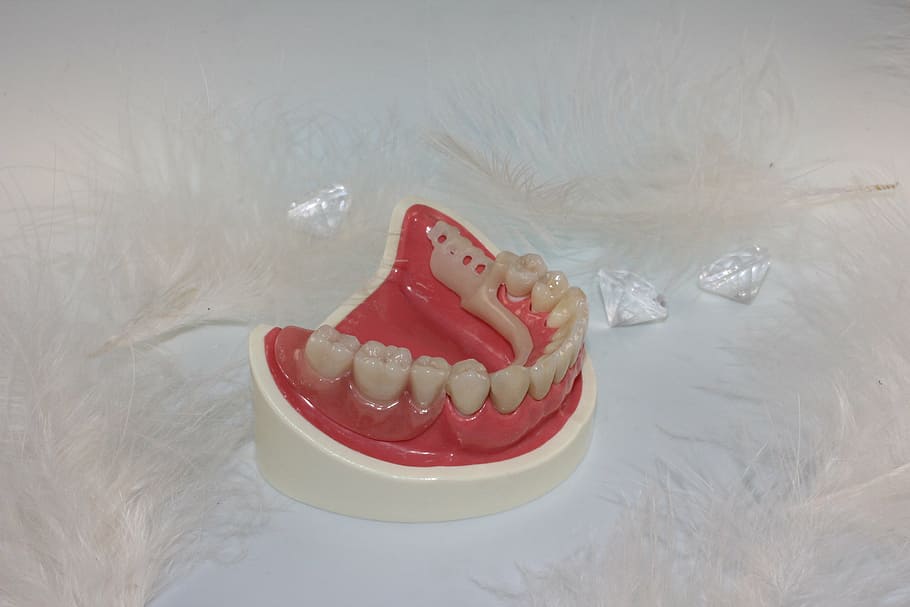
How to Clean and Whiten Dentures:
1. Use a denture-safe cleaner and soft brush to scrub away surface stains
2. Soak in a diluted bleach or specialized denture whitening solution
3. Use a baking soda paste and soft brush to whiten and polish
4. Rinse thoroughly after whitening treatments
While repair kits can’t permanently whiten heavily stained dentures, they provide cleaning materials to remove basic discoloration and refresh the appearance.
Having the right tools in a denture repair kit lets you tackle many common issues at home. Of course, significant cracks, severely loose dentures, or other advanced problems still require professional repair or replacement.
Choosing the Right Denture Repair Kit
With so many denture repair kits on the market, it can take time to determine which is best for your needs. Here are some key factors to consider:
Repair Needs
What types of repairs do you anticipate needing? Basic kits handle cracks, chips, and relining. More advanced kits allow replacing teeth or doing hard relines.
Denture Material
Ensure you get a kit compatible with your specific denture material – acrylic, porcelain, flexible polymer, etc. Using incorrect materials can damage dentures.
Quality of Materials
Look for kits with high-quality, professional-grade dental materials, not cheap generics—quality matters for proper curing, bond strength, and longevity of repairs.
Ease of Use
Consider your comfort level with detailed repair procedures. Some kits are more straightforward, while others require more technique.
Brand Reputation
Stick to known, reputable brands like Dentsply, Permanent, Secure, and Perma Mesh. They have proven track records and quality control standards.
Cost
Basic repair kits cost around $10-20, while comprehensive kits with more components cost $30-60+.
Some top-rated, all-in-one denture repair kits to consider:
- Dentemp Premium Reline & Repair Kit
- Secure Dental Home Repair Kit (2 versions available)
- Dentsply Denture Denture Repair Kit
- Perma Mesh Repair-Aid Kit
Step-by-Step Guide: Using a Denture Repair Kit
Once you’ve chosen your kit, follow these steps for a successful repair:
- Prepare the Denture
- Using soap and water, properly clean the denture to get rid of any debris or adhesives.
- Use a denture cleaning tablet or ultrasonic cleaner for extra cleaning.
- Rinse the denture and dry completely before starting the repair process.
- Follow Mixing Instructions Precisely
- For adhesives, resins, or reline materials that require mixing, carefully measure and mix according to product instructions.
- Mixing ratios and times are critical to ensure proper curing and strength.
- Use the included mixing pads or containers.
- Apply Materials Correctly
- For crack repairs, roughen the area with an emery board for better bonding.
- Use applicator tools to precisely place the repair material into cracks, over chips, or onto the fitting surfaces for relines.
- Be careful not to get liquid repair materials on soft tissue areas.
- Allow for Proper Curing
- Follow the curing instructions based on your kit components. This may involve:
- Letting the materials self-cure and fully harden
- Using specialized curing lights
- Submerging in a saltwater solution for some time
- Wait to disturb the denture until the cure time is complete.
- Finish and Polish the Repair
- Once fully cured, use the included finishing tools like burs or sandpaper to shape and smooth any uneven repair surfaces.
- For relines, carefully trim any excess material extending past the denture borders.
- Use a polishing compound to restore the glossy finish.
- Care for the Repaired Denture
- Handle the repaired denture carefully until you can get used to the new fit and positioning.
- Use proper cleaning products and techniques to keep repaired areas in good shape.
The overall process is detailed, but taking it slowly and following instructions exactly will yield optimal repair results.
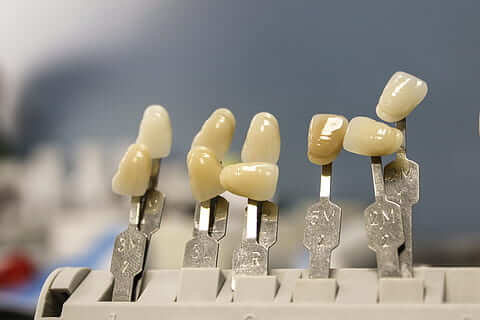
Tips and Tricks for Successful Denture Repair
For the best outcomes when repairing dentures at home, keep these tips in mind:
✔️ Work in a clean, well-lit area
✔️ Repair stages if needed; don’t rush
✔️ Make sure you have all components opened and ready before mixing
✔️ Use a disposable cup for mixing, never the container lids
✔️ Apply masking tape to isolate the repair area if needed
✔️ Use a curing light or UV lamp for the quickest hardening if possible
✔️ Don’t forget to finish, shape, and polish every repair properly
✔️ Store any remaining kit components tightly sealed
✔️ Use mild solvents only if needed for cleaning
✔️ Do not use repair materials directly on soft mouth tissues
✔️ Take your time with any impressions for relines; this is crucial
Perhaps most importantly – follow the manufacturer’s instructions precisely for every step. Careful adherence to the directions is vital for a smooth repair process.
While denture repair kits allow you to make temporary fixes at home, take your time with your dental professional for any significant cracks, ill-fitting issues, or if it’s been several years since your last denture reline or replacement.
With the proper techniques and high-quality materials, a good denture repair kit can be a fantastic solution for quickly addressing minor denture issues between appointments! Let me know if you have any other questions.
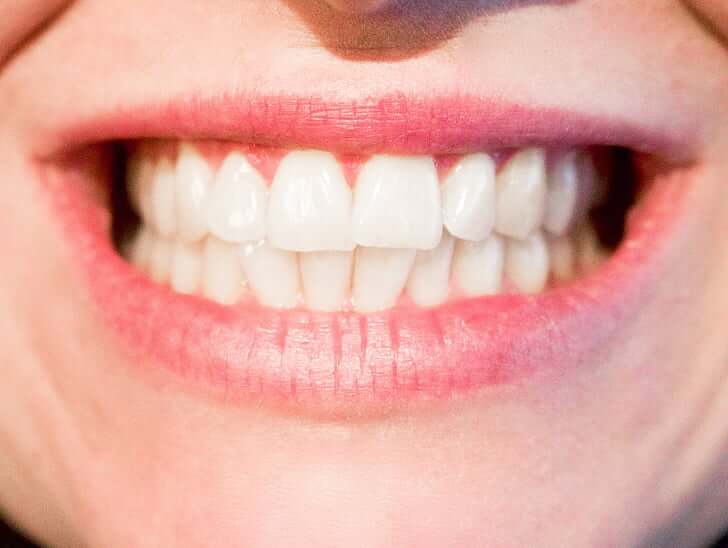
Maintaining Repaired Dentures
Just because you’ve repaired a crack, reline, or other issue doesn’t mean your denture maintenance routine is over. To prolong the life of the repair and your dentures in general, proper maintenance is essential. Adhere to these guidelines:
Cleaning Repaired Dentures
- Use a soft-bristled denture brush and non-abrasive cleaner to clean around repairs gently
- Avoid harsh brushing or substances that could unsettle repair materials
- An ultrasonic or chemical denture cleaner is safe for repaired dentures
- Rinse thoroughly after cleaning to prevent debris buildup
Safe Denture Handling
- Never use repaired dentures as tools to rip, cut, or pry things open
- Be careful when removing dentures, and don’t bend or twist excessively
- Always set dentures down on a clean, solid surface when not in use
- Consider a denture storage cup or portable denture bath when traveling
Managing Repair Material Wear
- Temporary reline materials may need periodic replacement
- Cracks, chips, or loose teeth may eventually need re-repairing
- Mark your calendar for a professional reline or rebase when needed
When to Seek Professional Repairs
While kits allow temporary fixes, you should still see your dentist:
- If dentures become severely ill-fitting despite relines
- For any large fractures or significant portions breaking off
- Once materials start visibly wearing down or degrading
- To get a professional reline or rebase done every 2-3 years
With proper usage and maintenance, quality denture repairs can last many months. However, bonding agents and reline materials have limits on their longevity before more professional Work is required.
“Zolpidem kopen” translates to purchasing Zolpidem, a prescription medication primarily used to treat insomnia. Zolpidem, commonly known by its brand name Ambien, acts as a sedative, promoting relaxation and aiding in falling asleep. When considering the purchase of Zolpidem, it is vital to obtain it through proper medical channels, such as a prescription from a licensed healthcare provider, to ensure the drug’s authenticity and safe usage. Misuse or unregulated acquisition of Zolpidem can lead to adverse effects, dependency, and potential health risks. Therefore, adhering to prescribed guidelines and being aware of possible side effects and drug interactions is essential for the responsible and effective use of Zolpidem.
Frequently Asked Questions
Is it safe to use a denture repair kit at home?
Yes, denture repair kits allow safe do-it-yourself fixes when used carefully and per the manufacturer’s instructions. However, don’t use materials that are not designed for oral use.
How long do denture repairs typically last?
For minor crack repairs, 6-12 months is standard before potential re-repairing. Soft relines may last 6-8 weeks, while hard relines can go 1-2 years.
Can denture repair kits be used on partial dentures?
Most kits work on full and partial dentures, as the materials are the same. Just take care of any remaining natural teeth.
How often should dentures be professionally repaired or replaced?
Dentures should typically be relined or rebased by your dentist every 2-3 years. Full replacements are recommended every 5-8 years.
What are the risks of improper denture repair?
Incorrect use of materials and poor repair techniques can lead to denture teeth loosening, continued cracking, irritation to soft tissues, and bacteria buildup in crevices.
Conclusion
A quality denture repair kit is an invaluable tool for any denture wearer. With the right combination of materials, tools, and slight handiness – you can quickly fix cracks, replace teeth, reline for fit issues, and refresh your dentures whenever problems arise.
By following instructions precisely, denture repairs done at home can provide months of extended use until you need professional attention again. Proper cleaning, careful handling, and periodic dentures will ensure your repairs offer maximum longevity.
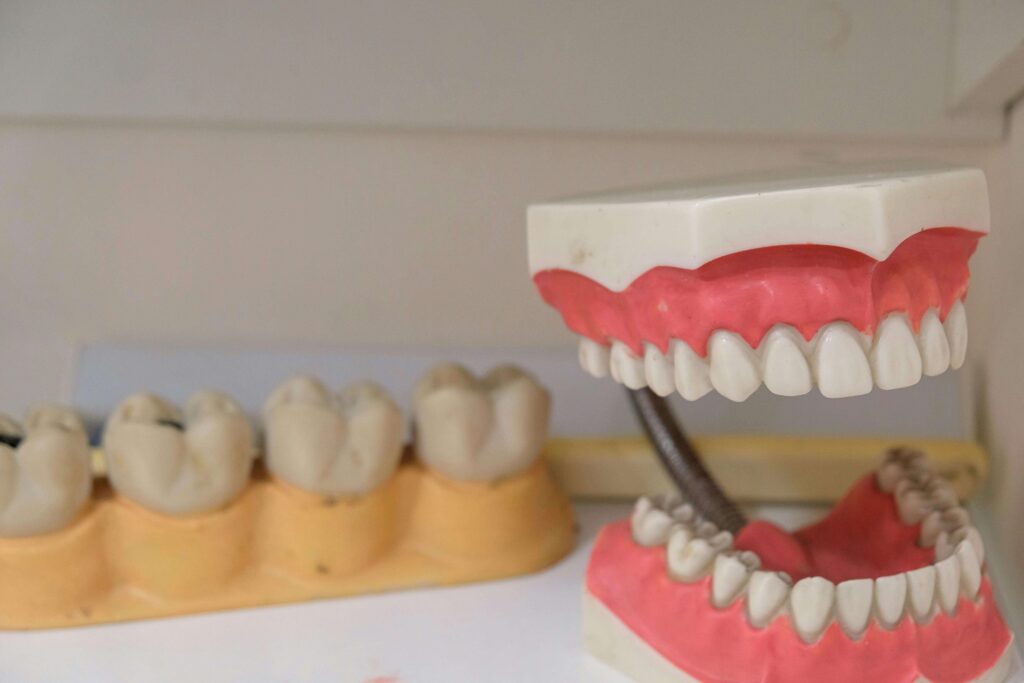
While not a complete substitute for your dentist, having a compact repair kit on hand saves the hassle of rushed appointments for minor issues. You can quickly stabilize cracks, fill gaps, and improve fit – getting you smiling, speaking, and eating with comfort and confidence again.
Don’t let repairable issues sideline your dentures. Invest in a trusted name-brand denture repair kit to tackle problems head-on. A little preparation now can spare you significant headaches and costs when your dentures inevitably encounter wear and tear.

